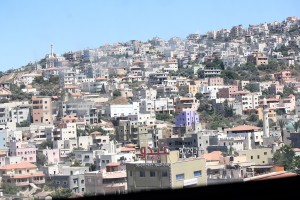
Spatial planning shapes the area in which we live.
Planning policies regulate our access to housing, schools, health clinics, parks, and industrial and employment zones, as well as our access to water, electricity, sewage and roads.
Planning therefore plays a central role in determining the quality of our environment and our prospects for socio-economic development, as well as the general well-being of communities and individuals alike.
Flawed or discriminatory planning, however, reinforces the inequalities between different sectors of society and can result in severe violations of human, civil and social rights. In conflict regions and societies with significant minority populations, such as ours, inequitable policies and practices can be a major source of friction, particularly when they impinge on the right to land and property and to adequate housing conditions, as well as the freedom of movement.
